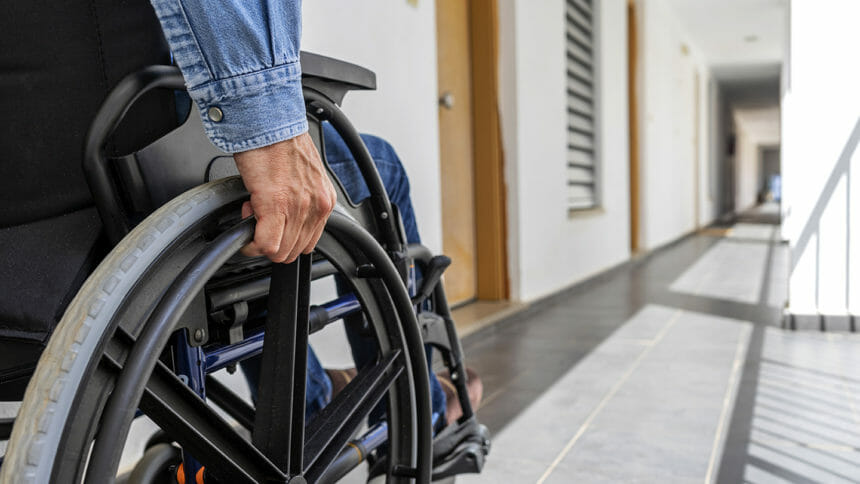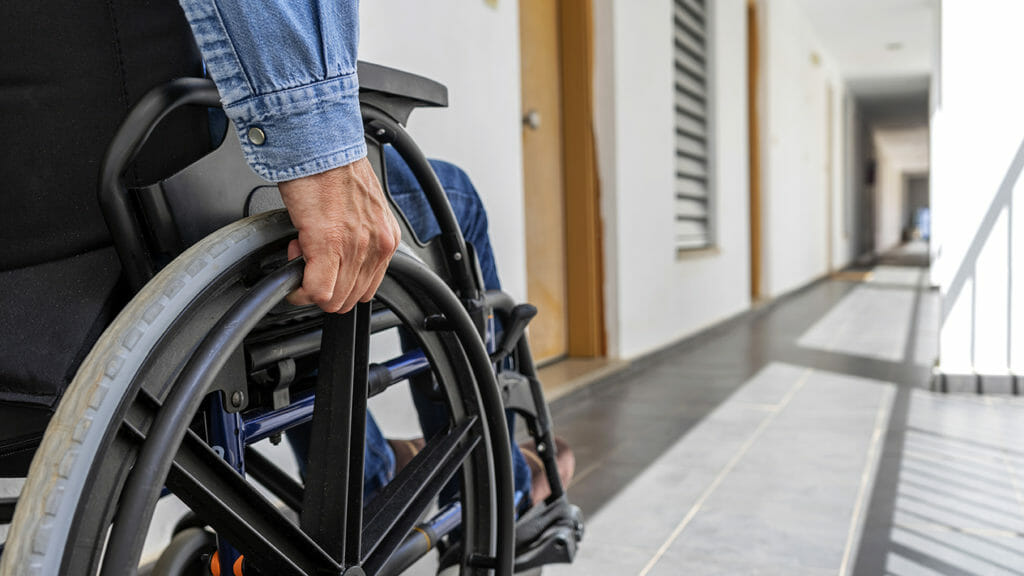

New York assisted living operators no longer automatically can turn away prospective residents who use wheelchairs, according to the state health department.
Last week the New York Department of Health announced changes to its assisted living regulations, driven by a 2018 lawsuit brought by the Fair Housing justice Center and two individuals against the New York Department of Health over alleged discrimination against people who use wheelchairs.
The new rules clarify that adult care facilities must individually assess for residency people who use wheelchairs and consider requests for reasonable accommodations. Facilities no longer can outright bar individuals with mobility impairments from residency.
Empire State Association of Assisted Living Executive Director Lisa Newcomb told McKnight’s Senior Living that, overall, the association and its 335 members “embrace the spirit and intent of the changes to the regulation” but that “grossly insufficient government funding for residents with little or no personal income and workforce shortages will make it challenging for many providers.”
A joint statement released by the Fair Housing Justice Center, the AARP Foundation, Mobilization for Justice and Pillsbury Winthrop Shaw Pittman called the amended regulations a “positive step.”
“It’s been an arduous process to end many years of discrimination against people with mobility impairments, and we are satisfied that this change will result in more options for more people to live in a facility that is best suited to their needs,” Elizabeth Grossman, FHJC executive director and general counsel, said in a statement.
Although the latest regulations mark a “significant win” for FHJC and the other parties, the case remains pending as questions about how the state plans to enforce the new rules to “remediate the long-time discriminatory practices that DOH’s rules have fostered remain unanswered,” a statement from FHJC read.
AARP is calling on the state to “implement and enforce the new regulations effectively so that adult care facilities treat New Yorkers who use wheelchairs with dignity and respect,” William Rivera, AARP Foundation senior vice president, said in a statement.
“We hope that facility operators, healthcare providers and consumers and their loved ones all receive the same clear message: using a wheelchair should not be an automatic ticket into a nursing home for the rest of your life,” Jota Bormann, Mobilization for Justice senior staff attorney said in a statement.
Undercover investigation led to lawsuit
The FHJC and the AARP Foundation sued the state in 2018, alleging that the New York health department “promotes disability discrimination through its regulations and policies.” Adult homes were allowed to ban wheelchair users, and the state Department of Health regulations said that assisted living operators “should not accept nor retain any person who … is ‘chronically chairfast,’ ” according to the complaint.
The lawsuit followed an FHJC “undercover testing investigation” of the named properties in 2017 after receiving discrimination complaints from residents.
The complaints, according to the suit, included residents being prohibited from using wheelchairs and other mobility devices throughout facilities and in common areas and being warned that they could be sent to nursing homes if they became too reliant on such equipment.
The state amended its rules shortly after that lawsuit was filed, but the organizations argued the changes did not go far enough. At the time, the state still allowed assisted living and other adult facilities to bar residents who needed help with walking or climbing stairs. The rule effectively prohibited people in wheelchairs.


